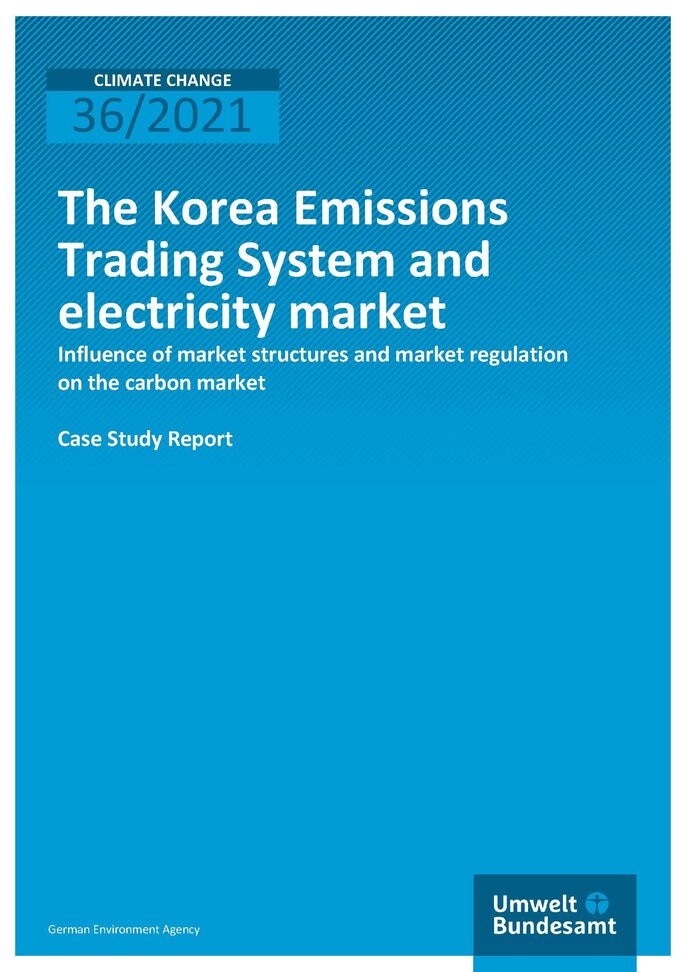
The Korea Emissions Trading System and electricity market
Influence of market structures and market regulation on the carbon market
Electricity generation is the largest source of greenhouse gas emissions in many countries. Most emissions trading systems (ETS) therefore address emissions from electricity generation. The de-sign of an ETS and the structure and regulation of the electricity sector have a large impact on the environmental effectiveness and the quality of the carbon price signal. This report analyses the interaction of carbon and electricity markets in the Republic of Korea. Since its launch in 2015, the K-ETS has evolved into one of the country’s principle mechanisms for achieving its emission reduction target. Regulatory reform in the carbon and the electricity market has a large potential for acceler-ating emission reductions through the ETS and could set an example for countries considering in-troducing carbon pricing policies to advance decarbonisation in regulated electricity sectors.
This case study is part of the project “Influence of market structures and market regulation on the carbon market” that aims to identify the impact of market structures and regulations on carbon markets and to investigate the interdependencies between carbon and energy markets in Europe, California, China, South Korea, and Mexico.
The Californian Emissions Trading System and Electricity Market
China’s Pilot Emissions Trading Systems and Electricity Markets (Hubei and Shenzhen)
Emissions trading in pursuit of electricity decarbonisation - market structures and regulations matter